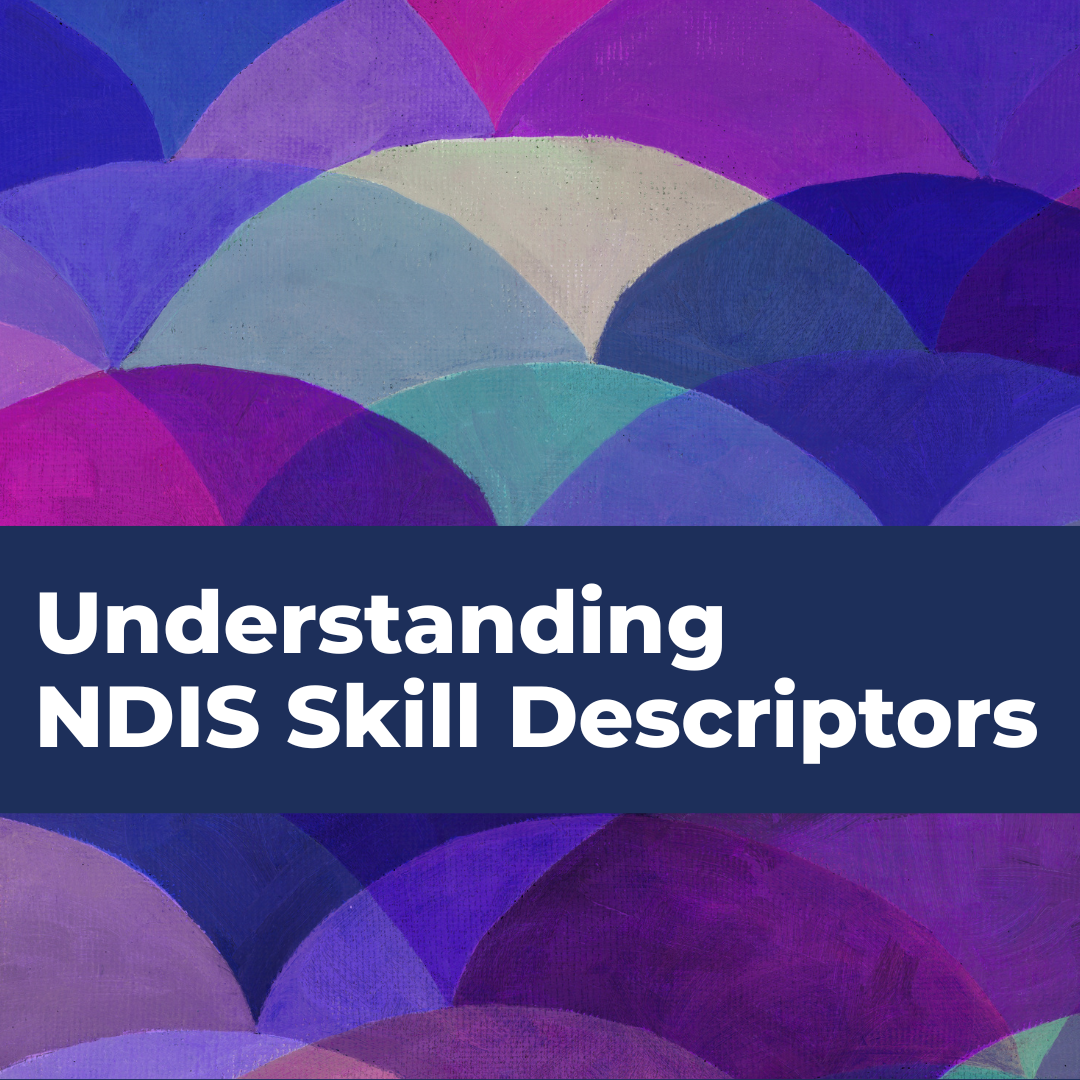Providing safe and effective care under the National Disability Insurance Scheme (NDIS) requires care providers to possess the appropriate knowledge, skills, and expertise to manage complex support needs. As the NDIS serves a diverse range of participants, many of whom have unique and high-intensity care requirements, it is essential for support workers to be properly trained in handling these challenges with confidence. The NDIS Skill Descriptors play a vital role in this process by outlining the specific competencies required for delivering complex supports. These descriptors ensure care providers are equipped to meet the needs of participants with specialised care plans.
Skills Centre Australia offers dedicated courses tailored to each of the key areas outlined in the NDIS Skill Descriptors, ensuring support workers are fully prepared to meet these demands.

What are NDIS Skill Descriptors?
The NDIS Skill Descriptors define the essential skills and knowledge that providers must possess to deliver high-intensity support services. They are crucial for tasks that involve complex care, where risks to participants, workers, and others can be significant. They guide both NDIS auditors and providers in evaluating whether support workers have the necessary capabilities to deliver care effectively and safely.
In essence, these descriptors set a benchmark for competency in high-risk activities, ensuring care workers can confidently manage complex needs while prioritising the safety and wellbeing of participants.
High intensity support services
High intensity support services refer to tasks that require specialised skills and knowledge, often involving more complex medical or physical interventions. These services are necessary when a participant’s needs go beyond routine care and require a higher level of expertise. For instance, support workers who assist in complex bowel care must have specialised knowledge in recognising signs of health deterioration, administering specific medications (like enemas), as well as following strict hygiene and infection control procedures. Likewise, enteral feeding and ventilation support requires in-depth knowledge of medical equipment, as well as the ability to handle emergencies, like tube dislodgement or respiratory distress.

Key areas covered by the NDIS Skill Descriptors
The NDIS Skill Descriptors outline several key areas of high-intensity support for individuals with complex healthcare needs. Each of them require highly specialised training (like those offered by Skills Centre Australia) to ensure the safety and wellbeing of participants. These areas include:
- Bowel care:High-intensity bowel care involves assisting participants who are at risk of severe constipation or faecal incontinence. Care plans for these participants must be followed closely, and workers must be skilled in administering medications, performing procedures like enemas, and recognising signs that require immediate health intervention.
- Eternal feeding and management:For participants reliant on tube feeding, support workers must have the necessary training to manage feeding tubes, administer food, monitor the health of a stoma site, and respond to any complications (such as blockages or reflux). This often involves collaboration with health practitioners like dieticians and speech therapists to ensure feeding plans are followed correctly.
- Severe dysphagia management:This requires specialised skills to manage the risks associated with severe swallowing difficulties. Support workers must be trained to assist in managing this condition by following mealtime management plans, helping to prepare food with the correct texture, and providing emergency responses if the participant experiences choking or difficulty swallowing.
- Tracheostomy care and ventilation:Tracheostomy care is a high-risk activity where workers must ensure the maintenance of the tracheostomy tube, perform suctioning procedures, and recognise the signs of airway obstruction. Additionally, support for ventilation needs requires expertise in operating and troubleshooting ventilation equipment to ensure continuous airflow and safety.
- Subcutaneous injection and diabetes management:Some NDIS participants require regular injections, including insulin for diabetes management. Workers need specialised training to administer these injections, including calculating dosages and understanding the broader context of the participant’s medical needs.
- Urinary catheter support: Workers assisting with urinary catheter management must be trained in insertion and maintenance. This includes hygiene practices, monitoring for signs of infection, and taking appropriate action if complications arise, such as dislodged catheters or blockage.
Epilepsy & seizure support: Those supporting clients who are prone to seizures must be trained in identifying triggers, understanding patterns, and taking immediate action. This includes administering emergency medication or ensuring safe positioning. Support workers are also responsible for monitoring clients with wearable seizure devices and providing post-seizure care.
To equip workers with the necessary expertise, Skills Centre Australia offers dedicated trainings tailored to each of these areas, ensuring support workers are taught how to provide quality assistance and follow specific care plans.

How our courses align with NDIS Skill Descriptors
At Skills Centre Australia, we understand the importance of equipping support workers with the right skills to meet NDIS standards. Our quality courses are carefully designed to ensure workers are prepared to provide high-quality care in line with these descriptors. We provide hands-on experience, practical knowledge, and the opportunity to develop critical skills. By aligning our training programs with NDIS guidelines, we help providers ensure their staff are not only compliant with regulatory requirements but are also capable of offering compassionate, informed, and competent support to those with the most complex care needs.
In addition to this, we offer a dedicated Writing a Care Plan course open to enrolled or registered nurses. Participants will learn how to develop care plans that align with NDIS and industry standards, while addressing the specific needs of clients. It focuses on structuring care plans with clarity, prioritising individual goals, and ensuring all documentation is professional and compliant with legislative requirements.

The NDIS Skill Descriptors are essential to ensuring workers in the disability care sector can deliver safe and effective high-intensity support services. As a training provider dedicated to the aged care and disability sectors, Skills Centre Australia plays a pivotal role in preparing workers to meet these fundamental standards. In addition to our course catalogue, we provide individualised trainings (upon request) based around these descriptors. By offering specialised courses that aligns with NDIS Skill Descriptors, we help ensure participants receive the best level of care possible, tailored to their individual needs and delivered by skilled professionals.


